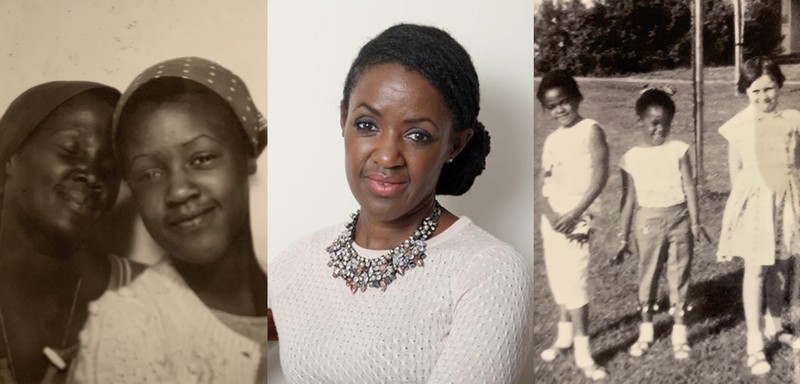
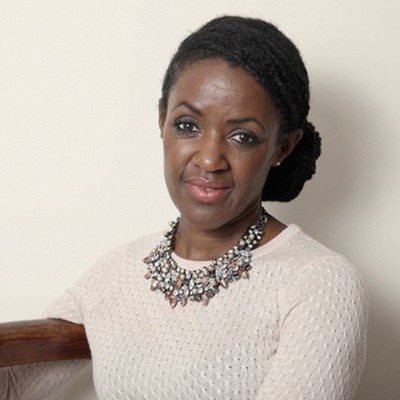
Chapters In My Life: Diane Louise Jordan
Chapter One:
Growing Up In The Home Counties
“I was born in London in 1960 but, by the time I was four, we were living in Hatfield. Even though we’d lived in a nice part of London, my parents were worried about our family being subjected to physical violence there, so they decided to move us out. I remember our letterbox was taped shut because my parents – and the landlord – were scared about what people might put in there. In the home counties, we were still in the minority, and I think my parents missed their friends in London. The stress certainly got to them, and it projected onto me. I was always desperate just to be part of the crowd.
“It's a funny question but I think performing is probably in my genes. I never liked being the centre of attention that much as a kid, but my father used to be part of The Magic Circle – an illustrious group of magicians that worked in the entertainment world before he emigrated to the UK. It was very serious – there was a code and everything; you couldn’t tell anyone how you pulled off the tricks.”
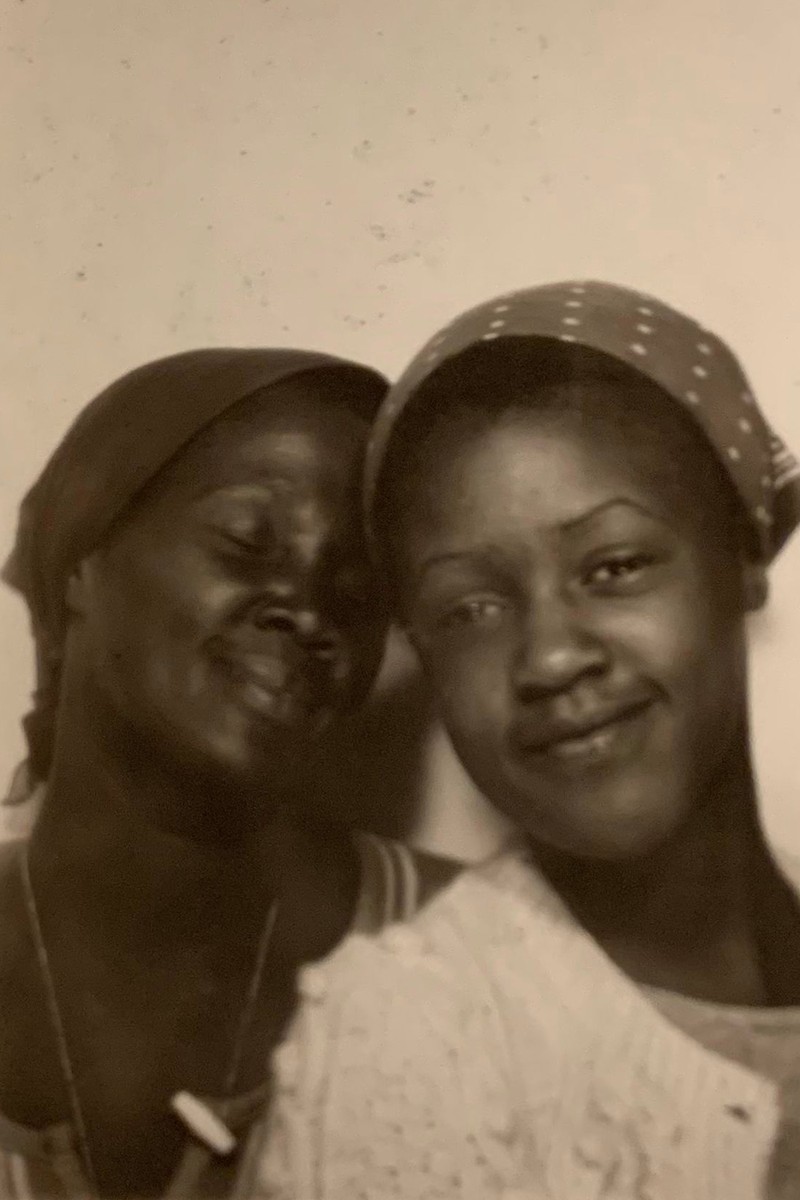
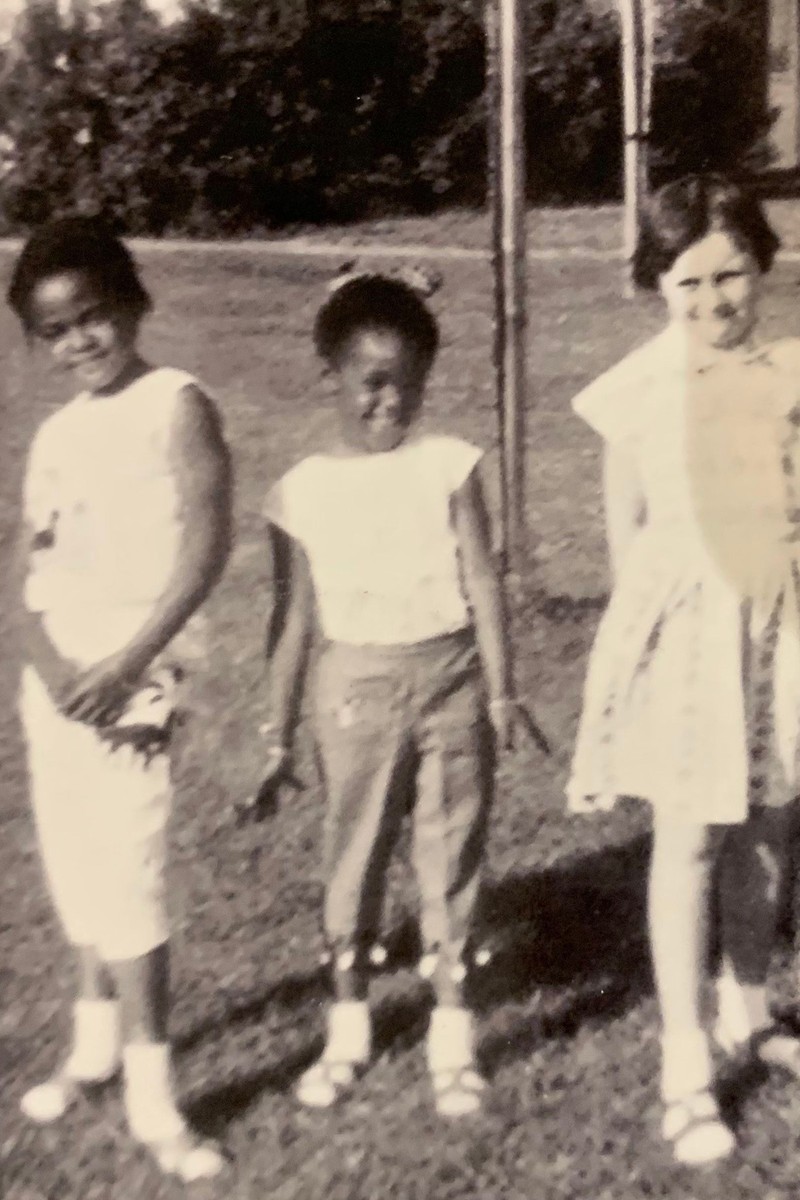
Chapter Two:
Applying To Theatre School
“I was dared to fill in an application for theatre school. One of my friends had a spare and they really egged me on. Even though it was a dare, I couldn’t forget my grandfather’s famous phrase: ‘Whether you’re running the country or cleaning the country, give it your all.’ So, I did. I took the application seriously and to the shock of everyone, I was invited to audition. My friends dared me again to go through with it and even escorted me there to make sure I kept my word. Oddly, a lot of my friends were quite theatrical and I wasn’t but, on the day, I really enjoyed the experience.
“When the Rose Bruford College offered me a place, I said yes – even though I had little to no intention of ever being an actor or presenter. I had no idea what a presenter was really – and towards the end of the course, my course director actually called me in to warn me to look for other work. He said I was too short and would only be cast in certain roles because I was black. It didn’t actually bother me much, because I wasn’t fussed about being in this world, but just to satisfy my own curiosity I did apply for a couple of jobs. I ended up being offered a nine-month theatre contract before I left, which resulted in seven years as a working actress travelling the breadth of the country.”
/https%3A%2F%2Fsw18.sheerluxe.com%2Fsites%2Fsheerluxe%2Ffiles%2Farticles%2F2022%2F09%2Fdiane-image-4.jpg?itok=CKT2KsBS)
Chapter Three:
Joining Blue Peter
“It was towards the end of my acting career that the offer for Blue Peter came to me. Years before, I’d been working up at the playhouse in Harrogate, playing Eliza Dolittle in My Fair Lady, and on the press night, I won rave reviews. The theatre director was thrilled and it was a really successful run. Several years later, that same theatre director was at a dinner party and sat next to a children’s television producer who was working on a show called Corners. They needed someone for about three weeks to step in for one of the main presenters, Sophie Aldred, and they drafted me in. My audition tape was appalling so I’ve no idea how I got the job, but I loved every minute of it.
“They told me I was a natural and it just so happened the Blue Peter team were next door rehearsing for their next show. Their producer, Lewis Bronze, was looking to replace Caron Keating who was about to leave, and they asked me to audition. I went through what felt like hundreds of audition rounds – they’re often based around activities you would do on the show – and then was finally offered the job.
“Weirdly, I wouldn’t say Blue Peter felt like my big break moment. That probably came years earlier when Mike Leigh – a director I’d admired for many years – offered me a part in his film High Hopes. Blink and you miss me, but it felt very serendipitous. I’m quite used to strange things happening to me – nothing in my life has felt very planned and I’ve often just gone with the flow.”
Chapter Four:
Becoming A Single Parent & Building A Family
“The same year I got Blue Peter, I’d also become a single person, unexpectedly. My sister Jay died very suddenly. It all happened in 24 hours. Jay had been decorating her house and was feeling a bit under the weather. Thinking she had the flu, she went to bed. The next morning, my father went round to give her a hand with the painting. When she didn't answer the door, he let himself in and made a cup of tea to take up to her and found her dead in bed. All that the doctors could tell us was that she'd had some sort of virus. We've never really found out exactly what caused it and, though it was very frustrating at the time, after a while we realised it wouldn't do any good. It wouldn't bring Jay back.
“While we were all devastated, it was up to me to take my niece Justine into my care. I became a mother overnight – no morning sickness, no nine months to think about it. One day I was on tour with a production of The Pied Piper, the next I had a daughter. Sadly, a lot of my acting work had to stop because I was now looking after a child, so life was a bit hand to mouth for some time. It was very fortuitous, then, that I ended up getting the Blue Peter job around the same time. That said, being a parent is probably the most important and prestigious role in the world. Family is the foundation of everything I do and, if it didn’t flourish, I couldn’t do what I do.”
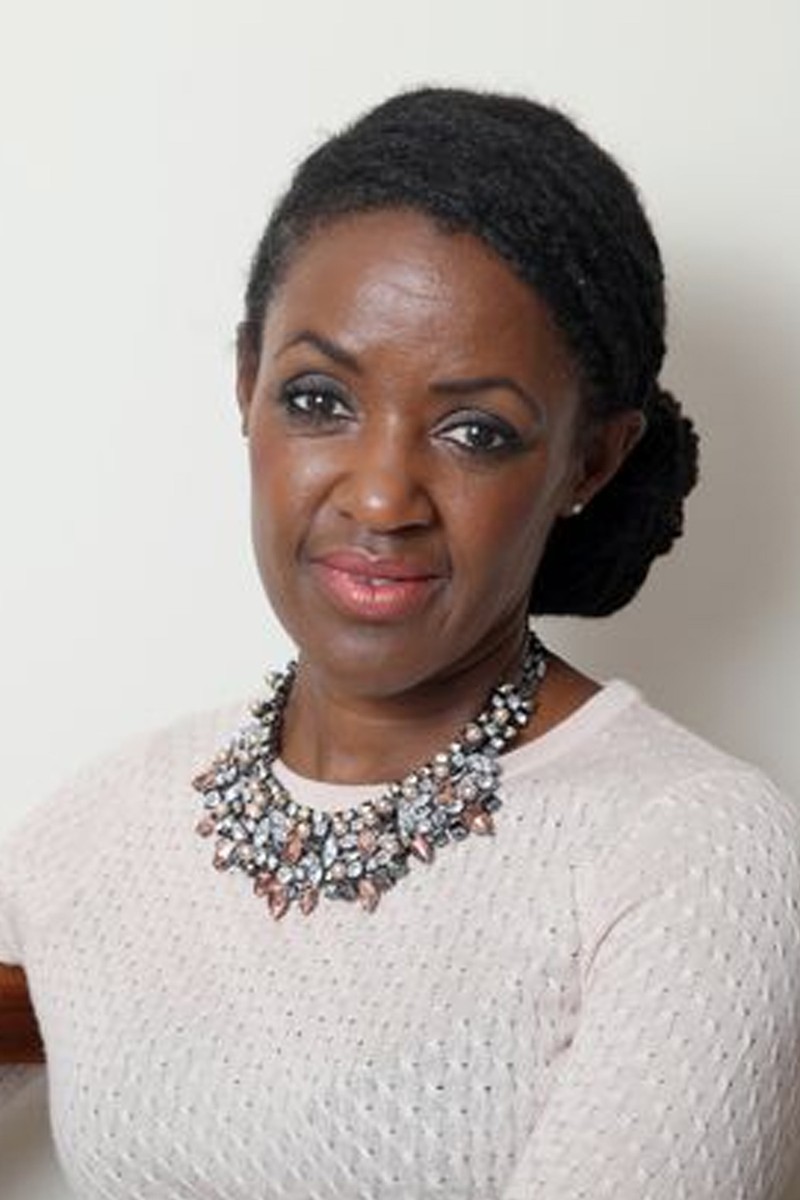
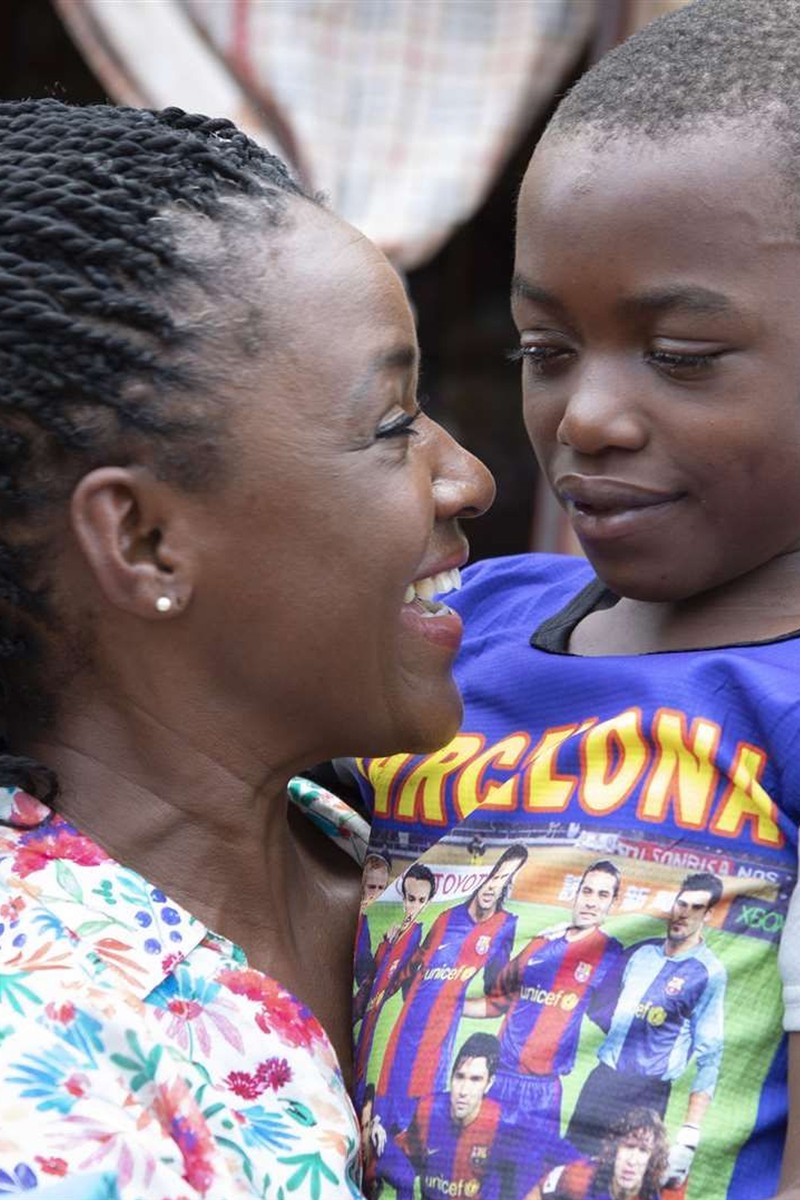
Chapter Five:
Dealing With The Tabloid Press
“Life changed massively after I joined Blue Peter. I’d been living in a housing association complex at the time, and I remember the News of the World running a story saying I’d let the BBC down because I was a Blue Peter presenter who was a single parent and living off benefits. They made me sound like a scrounger and immoral for having a child out of wedlock. They hounded me, they doorstepped my parents and old schoolfriends. They pretended to be social services phoning my daughter’s school and doorstepped some of the other parents too. It went on for months and I was convinced my phone was being tapped.
“I always refused to give them the story they craved and eventually they found out what had happened to my sister and how I’d become a mother. They lost all interest at that point and gave the story to The Sunday People who tried to turn me into some sort of Mother Teresa instead. It was bizarre and I didn’t enjoy being catapulted into the public arena. It was like being in a goldfish bowl. I’m just so glad there was no social media and only four channels on the television. Working in television can be so much fun but the intrusion into your private life can be intense.”
Chapter Six:
Finding My Faith & Marrying Giles
“Faith is something that found me later in life. Certainly, in my Blue Peter days, I wouldn’t have said I had any faith at all – it really only hit me as I was joining Songs Of Praise. Growing up in a Caribbean family, Christianity was certainly a strong thread, but it’s only really defined my life in my later years. I find it grounds me – particularly in this modern digital age when you are so judged on what you look like. Having faith reminds me not to get addicted to the fame and adoration – it’s easy to believe every nice thing people say to you in this business.
“I was single for many years while I was raising Justine and, funnily enough, she said to me recently that she and her cousins were worried back then that I was going to end up a lonely spinster! But I met my husband Giles in 2006, when I was 46, and we were married a year later. It was a bit of a whirlwind, but I just knew he was the one. We share similar values, even though we’re quite different people – I’m much more of an introvert and Giles loves the house to be busy and full of people. He’s also a musician, so he’s very expressive too.”
/https%3A%2F%2Fsw18.sheerluxe.com%2Fsites%2Fsheerluxe%2Ffiles%2Farticles%2F2022%2F09%2Fdiane-image-7.jpg?itok=UIgWuRJe)
Chapter Seven:
Embracing Philanthropy & Giving Back
“I never want to be associated with anything if I can’t add value. It sounds a bit naff, but I love seeing people flourish and I truly believe people sometimes need someone to hold their hand to get through things. It probably stems from my own experience with Jay and Justine and feeling a bit displaced as a child in Hatfield. When I was young, there were so many people who were there for me – great teachers at school, for instance – so I just want to try and be there for them and help in any way I can.
“One of the reasons I’m so committed to CBM now is because they really support individuals. It’s the small things that sometimes have life-changing impact. Just before the pandemic in February 2020, my grandson and I went to Rwanda with CBM, and we saw the work they do to save people’s sight up close and personal. We grew particularly close to a boy there called Etienne who was about ten and who needed an operation that cost less than my grandson’s trainers. But his family couldn’t afford it – even though this operation would bring his sight back and change his life. It just confirmed to me how much I wanted to work with CBM to be part of that change. My own father lost his sight in his later years, and I saw how much it knocked his confidence. And yet, the options he still had were numerous – it wasn’t going to destroy his life. But for Etienne, if he couldn’t see he couldn’t work, and he’d end up being a burden to his family.”
Chapter Eight:
The Next Chapter
“My dream is that wherever you live, and whatever your background, everyone has equal opportunities. In an ideal world, there’d be no need for an organisation like CBM. As for work, people often ask whether I’d like to do something like Strictly, but given my experience with Blue Peter, that would be a no. The commitment is huge, and I wouldn’t want it to take away from any of my charity work. If anything, I’d just like to be able to dedicate my time to other organisations who could benefit from it and that are creating spaces for people to get to know each other and become more compassionate.”
Diane Louise Jordan is a supporter of CBM, an international charity working to prevent blindness and transform the lives of people with disabilities in the world’s poorest places. Every day, people needlessly lose their sight because they can’t access vital treatment. Working in the world’s poorest places, CBM works to improve access to sight-saving treatment and ensure that people with disabilities can fulfil their potential. Cataract surgery to restore sight to someone who is blind can cost just £24, or £96 for a child as their operation is done under general anaesthetic. If you would like to donate, visit CBMUK.org.uk.
DISCLAIMER: We endeavour to always credit the correct original source of every image we use. If you think a credit may be incorrect, please contact us at info@sheerluxe.com.

